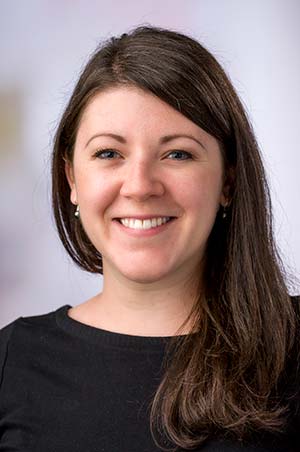Daphne Avgousti, PhD
Associate Professor
Human Biology Division, Fred Hutch
Affiliate Associate Professor
Basic Sciences Division, Fred Hutch
Dr. Daphne Avgousti studies how viruses hijack the DNA packaging of the cells they infect. She works with adenovirus, a common cold virus, to address fundamental questions about how special proteins work to neatly compress DNA to fit inside cells or viruses. Specifically, she works on how viruses use these DNA-packaging proteins, also known as chromatin proteins, to manipulate the host to their own ends.
Research Focus
The Avgousti Lab is focused on the mechanisms by which viruses hijack chromatin. Due to the major advancement in sequencing technologies and the expansion of the field of epigenetics, exploiting viruses to investigate chromatin biology has enormous potential. Our goal is to advance basic understanding of viral manipulation of chromatin and uncover new aspects of chromatin biology.
Much like the cellular genome, viral genomes must be compacted in virus particles with small basic molecules to maximize space and be poised for gene expression. Some DNA viruses use cellular histone proteins to compact their genomes whereas others use small basic molecules. Adenoviruses encode their own histone-like protein, called protein VII, that forms a ‘beads on a string’ assembly with the viral genome. We are interested in how adenovirus manipulates host chromatin through protein VII and more broadly how DNA viruses use histones or histone-like proteins for dual function: to compact their genomes and control host genomes.
Current Studies
Current research in the lab uses a multidisciplinary approach to address the following questions:
How does adenovirus protein VII impact nuclear architecture? The expression of protein VII in cells is sufficient to increase nuclear size and markedly disrupt the appearance of cellular chromatin (Avgousti et al, Nature 2016 and J. Virol. 2017). Current efforts focus on the molecular mechanisms of this disruption.
How does herpes simplex virus (HSV-1) affect host chromatin? Epi-proteomic analysis (Kulej and Avgousti et al, MCP 2017) revealed that hundreds of host proteins are regulated during lytic HSV-1 infection, including many chromatin factors. Projects will investigate how HSV-1 regulates host chromatin factors for viral benefit.
Other Appointments & Affiliations
Affiliate Assistant Professor, Department of Microbiology, University of WashingtonAffiliate Assistant Professor, Department of Microbiology
University of Washington
Education
University of Pennsylvania and Children’s Hospital of Philadelphia, Postdoctoral Fellowship (Microbiology)
Columbia University, 2012, PhD (Biochemistry and Molecular Biophysics)
Tufts University, 2006, BA (Biochemistry)
